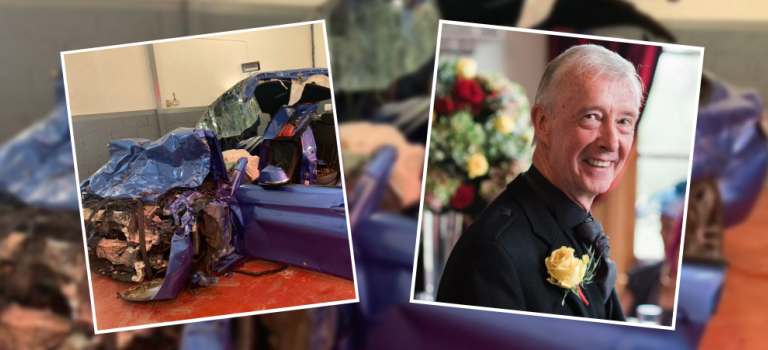Fatal accident inquiries (FAIs)
Some fatal accidents can be so serious that there are wider implications for public safety. In these circumstances, it is often appropriate to conduct a Fatal Accident Inquiry (FAI).
For most families this is the most important part of any judicial process. They want to know what happened to their loved one and why they have died.
What is a Fatal Accident Inquiry (FAI)?
A Fatal Accident Inquiry (FAI) is a public hearing that looks into deaths which happen suddenly, unexpectedly or around suspicious circumstances. The main purpose of it is to understand what happened and to help prevent future deaths from happening.
In certain situations, an FAI is mandatory. If someone dies in the course of their employment, then an Inquiry must be held. Similarly if there is a death in custody, whether in a prison or a police cell, an Inquiry requires to be carried out.
In other situations the decision to hold an Inquiry is a matter of discretion for the Lord Advocate.
When there is a criminal case this will normally be dealt with before the FAI. Sometimes an FAI might not be needed if the criminal court case has already answered some of the questions.
It’s important to know that this Inquiry is not intended to blame anyone but instead find an explanation for what happened and to identify any failings or faults in a system of work.
What is involved in a Fatal Accident Inquiry?
The decision to hold an Inquiry is made by the Lord Advocate, who heads the Crown Office and Procurator Fiscal Service. A dedicated procurator fiscal is allocated to each Inquiry. They control the process and are primarily responsible for deciding what evidence is produced to the Inquiry and which witnesses give evidence.
Most FAIs are held in a Sheriff Court near where the death took place, although they can also be held in other public buildings or even online. The Sheriff decides where and how the Inquiry will be held.
The first court stage is a Preliminary Hearing where the Sheriff identifies who will be represented at the Inquiry and further procedure is fixed. There may be more than one preliminary hearing.
The full Inquiry is conducted by a Sheriff who listens to evidence from people involved and carefully considers the facts. This can sometimes last a number of days or in complex cases, even a number of weeks.
At the end of the Inquiry the Sheriff writes a document called a ‘determination’. This report sets out their conclusions based on the evidence and includes:
- The time and place of death, and any accident resulting in the death
- The cause or causes of death, and any accident resulting in the death
- Any precautions that could have been taken to avoid the death
- Any defects in any system of working which contributed to the death or accident resulting in the death
- Other relevant facts about the circumstances
The findings in the determination are meant to help improve safety and prevent similar deaths in the future.
We are here to help
Digby Brown’s people are known for their expertise, excellence and empathy.
It’s why hundreds of people come to the firm every year following wrongful deaths in Scotland, such as the family of Kenny Heron, an engineer who died following an accident at work.
As reported in the media, his loved ones secured £500,000 in damages following his death. But for his wife Sheryl the case she built with Simon Hammond, Partner in our Edinburgh office, meant more than a simple cash sum. It meant she could protect her home, get support around the Fatal Accident Inquiry and get the answers she needed to her many questions after feeling like officials were not engaging with her.
If your fatal accident compensation claim is linked to an incident at the centre of an FAI then Digby Brown will support you through this.
We will provide expert background guidance to help you understand the process and what it means for you and your case (if it hasn’t already been settled).
FAQs
Who can be part of an FAI?
A Fatal Accident Inquiry is usually attended by people who had a close connection to the person who died. This can include:
- The person’s husband, wife, civil partner, or someone they lived with
- Their closest relative, if they weren’t living with a partner
- Their employer, if the death happened at work
- A health and safety inspector
- A trade union representative
- Anyone else the sheriff believes should be included
After hearing all the evidence, the sheriff or judge may recommend changes to help stop the same thing from happening again.
Is there funding available for an FAI?
We understand that funding can be a concern. While legal aid is sometimes available, it isn’t always guaranteed. Each situation is assessed on a case-by-case basis so whether you’re eligible will depend on your specific circumstances. We will do our best to guide you through what support may be available.
Is there any support available to help with grief?
Yes, we have a close connection to many bereavement charities and support services that can offer help during this time. Some of the organisations we work with include Brake and SAMH (Scottish Action for Mental Health).
What our clients say about us
We put our clients at the centre of everything we do and are committed to providing the very best service. The hundreds of five star reviews we have received on Trustpilot is a reflection of this approach.

-
based on 3,226 reviewsShowing our 4 and 5 star reviews.


